Fourth Time Around for Shortcut Man
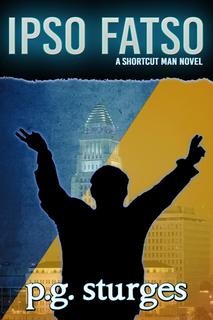
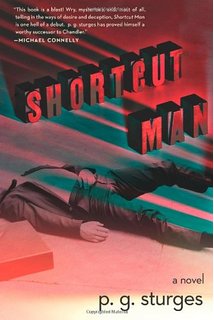 My favorite contemporary author, P. G. Sturges, is back with Ipso Fatso, the fourth novel in his Shortcut Man series.
My favorite contemporary author, P. G. Sturges, is back with Ipso Fatso, the fourth novel in his Shortcut Man series.
An intoxicating blend of comedy, social commentary, and hardboiled fiction, the series concerns Dick Henry, a fixer known as “the Shortcut Man.” Henry solves problems others can’t resolve and works quickly and effectively. Among his clients this time out is a college student being sexually harassed by her tenured professor and three generations of a Latino family living under one roof who are threatened with eviction by unethical bankers and with deportation by opportunistic politicians.
Obviously when one resolves to take on bankers and politics, one is aiming considerably higher than normal. The nice thing here is neither Dick Henry nor his author have bitten off more than they can chew.
The Shortcut Man is P. G. Sturges’ very special creation. He lives in nearly the same world as the rest of us. The exceptions are that it is a shared universe with Michael Connelly’s private eye, Harry Bosch; Sturges’ brother is a friend of Dick Henry’s; the Shortcut Man is a fan of real-life L.A. blues band, Pearly King and the Temple Thieves – readers are likely unaware Pearly King is Sturges’ musical alter ego; and Sturges’ maternal grandmother is also Dick Henry’s maternal grandmother making the author’s literary counterpart at least a cousin. Sturges quotes his father (famed Golden Age screwball comedy writer/director, Preston Sturges) in the form of chapter titles and lines in his books, but that is surely his rightful inheritance more than anyone else.
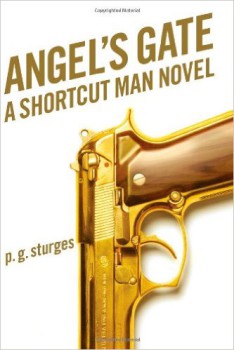
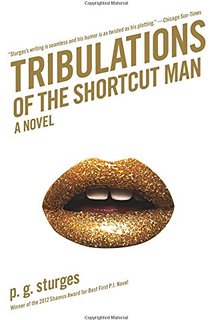 The elder Sturges is enshrined by the Directors Guild and Writers Guild with a building, statue, and his own award for lifetime achievement in both fields, yet he grows more obscure with each passing year because his smart, funny, classy scripts could never be rebooted in today’s Hollywood.
The elder Sturges is enshrined by the Directors Guild and Writers Guild with a building, statue, and his own award for lifetime achievement in both fields, yet he grows more obscure with each passing year because his smart, funny, classy scripts could never be rebooted in today’s Hollywood.
Likewise, the younger Sturges writes smart, pointedly funny fiction that Brian Helgeland should have already adapted for the silver screen or an HBO series, but his work remains sadly unknown outside of hardboiled mystery circles. Like his father, whose own hilarious autobiography expressed bemused acceptance of his rags to riches fortune in Hollywood, the younger Sturges is not a bitter man, he merely expresses his gifts as he must and knows he will find an audience on sheer talent, regardless of the size.
Four books into this five year old series and it is obvious the high standard of quality he maintains is crying out for rediscovery at some point. It will take someone willing to think out of the box and produce a concept that doesn’t require motion-capture actors and can’t be marketed as a summer or Christmas franchise. Sometimes, just a great story and dialogue are enough to greenlight a project. Generally, doing so catches Hollywood off-guard because good business sense isn’t as common as all those MBAs might suggest.
Like only the very best of writers, Sturges understands if you’re aiming at the big targets — banking and immigration — you must never lose sight of the humanity of the victims as well as the perpetrators (something the Occupy Wall Street contingent repeatedly fail to grasp). Yes, there are characters in the book who are simply pond scum in spite of their staggering income, but there are also victims among the perpetrators whose own tragic stories unfold gradually.
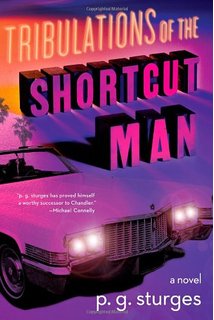
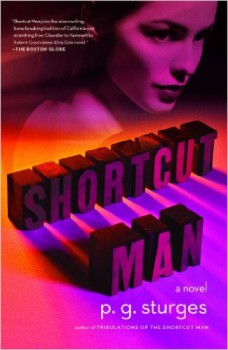 This is a tactic Sturges has successfully employed in past books when dealing with addiction (both substance and sexual). The pathos touches different places when dealing with white collar crime. As Dylan said in his own “Fourth Time Around” half a century ago, “I never asked for your crutch, now don’t ask for mine.”
This is a tactic Sturges has successfully employed in past books when dealing with addiction (both substance and sexual). The pathos touches different places when dealing with white collar crime. As Dylan said in his own “Fourth Time Around” half a century ago, “I never asked for your crutch, now don’t ask for mine.”
As in the first three books, Dick Henry proves adept at solving other people’s problems and hopeless at sorting out his own life. In this respect, he recalls Ross Macdonald’s Lew Archer as both men want nothing more than to reconcile with their estranged spouses. Dick Henry has more at stake than Archer, though. The latter was a frustrated family therapist plying his trade as a private eye. The former left his family when he let something other than his head or his heart lead him astray. His very soul cries out for redemption by righting the wrong he did (and in smaller ways, continues to do) to his ex-wife. That wrong is what stands in the way of his finding salvation.
It has been said that the principle value of art is what the beholder recognizes of themselves in the work. 2015 has been the year that brought me to my lowest point and threatens to let next year bring me lower still. Like Dick Henry, I had to repeatedly acknowledge that the blame rests squarely on my own shoulders in spite of all the wrongs that are done by others. Sturges keeps writing these books that ring true in so many ways. Every time I keep hoping Dick Henry will get it right and fix his own life the way he always manages to work miracles for others. Sometimes, that’s all the faith one has for personal redemption, particularly in a world where respectable institutions from the Church to the White House are mired in corruption. We all need a Shortcut Man to help us ease the pain of learning our own lessons the hard way. Unsurprisingly, Ipso Fatso is my pick for Best Novel of 2015. Read it. You won’t be sorry.
William Patrick Maynard was licensed by the Sax Rohmer Literary Estate to continue the Fu Manchu thrillers beginning with The Terror of Fu Manchu (2009; Black Coat Press) and The Destiny of Fu Manchu (2012; Black Coat Press). The Triumph of Fu Manchu is coming soon from Black Coat Press.